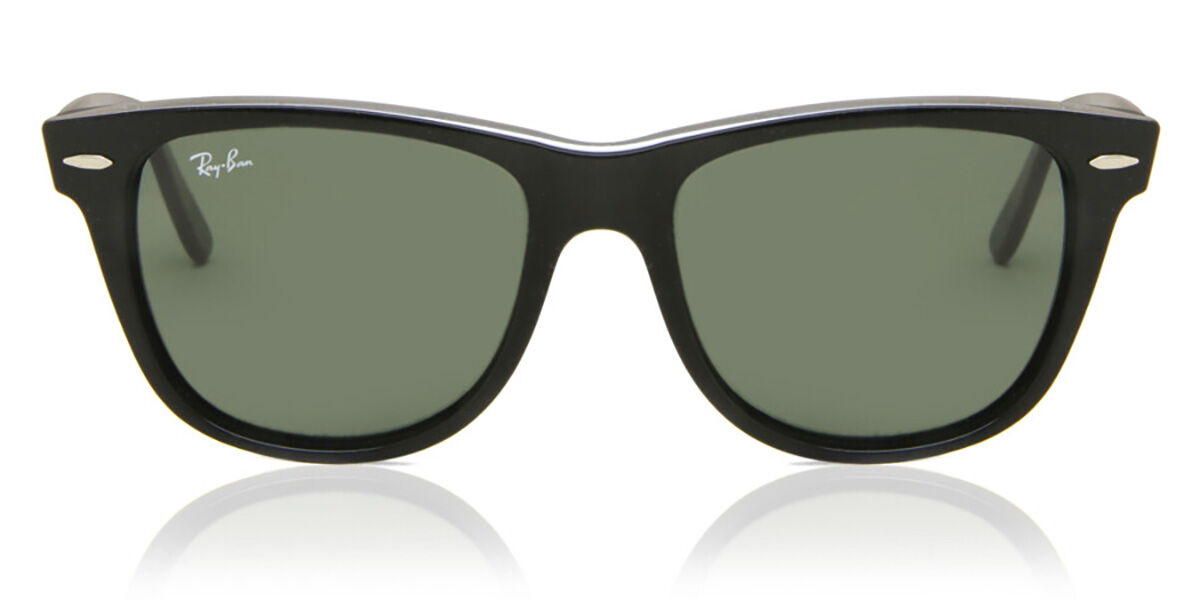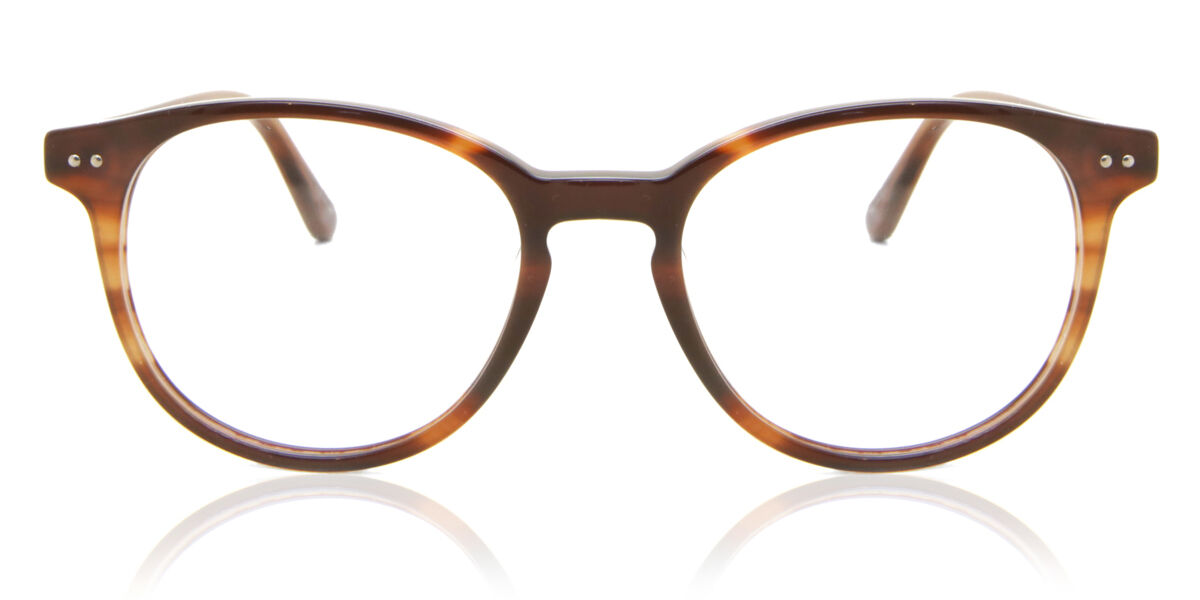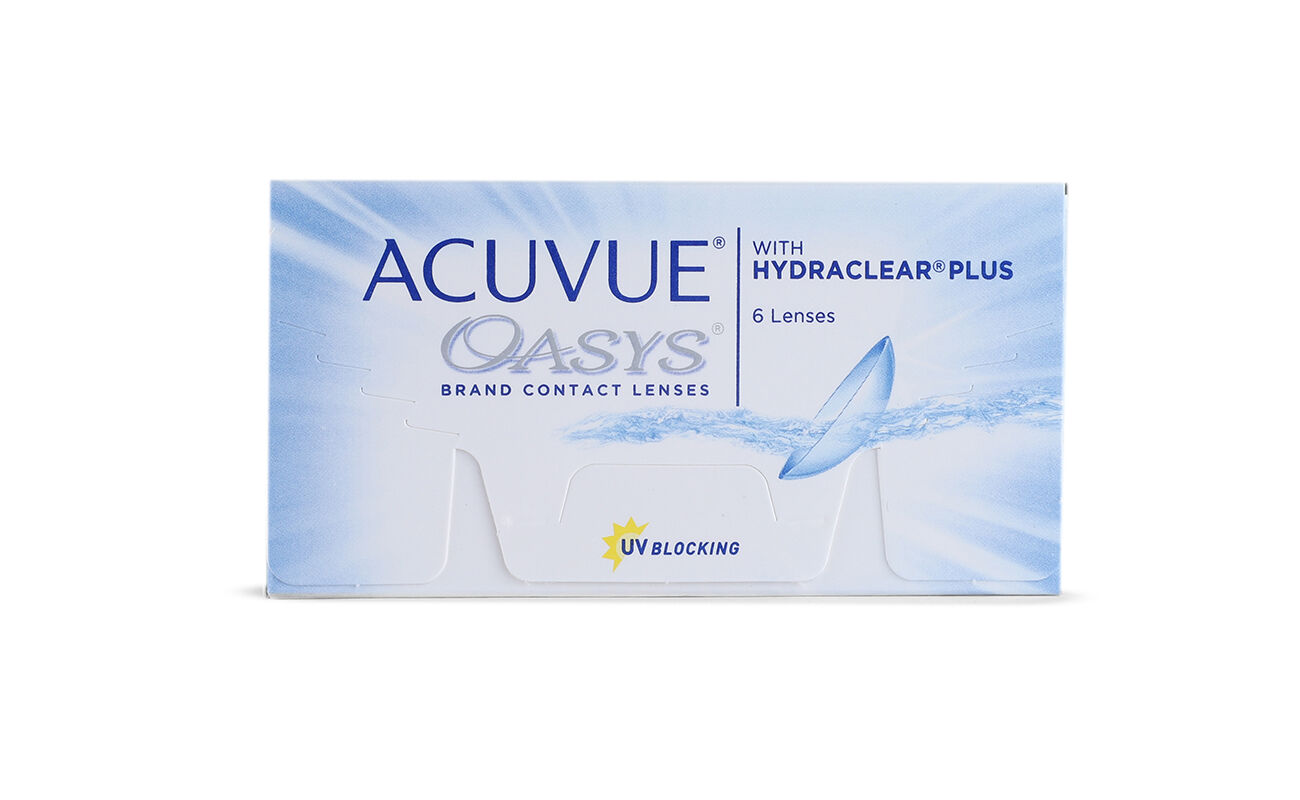How Can Blue Light-Blocking Glasses Improve Your Sleep?

Reviewed by
Beck JinnetteDo you go to bed with tired eyes, but still have trouble falling asleep? It could be because of blue light exposure.
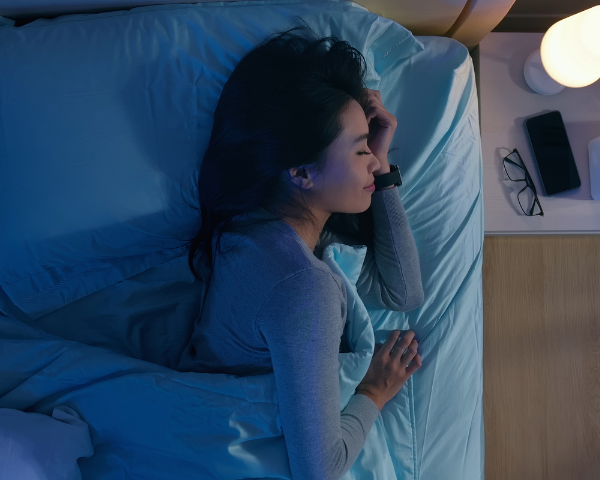
Disclaimer: Despite large amounts of anecdotal evidence from wearers of blue light glasses, current scientific evidence does not show a link between blue light-blocking lenses and the benefits outlined in this article, although research is ongoing.
In today’s digital era, an increase in the use of technology comes hand-in-hand with increased exposure to blue light.
Blue light is often cited as a cause of vision and sleep problems, but what is blue light, how does it affect the body, and how can wearing blue light glasses improve sleep quality?
What is blue light?
Have a look around your room, and take note of all the different colourful objects that you see.
Maybe you see a yellow pencil, a red apple or a green houseplant, but have you ever thought about where these colours come from, and how we can see them?
Visible light is a segment of the electromagnetic radiation spectrum that is visible to the human eye.
Each segment of the visible light spectrum has certain wavelengths that produce energy.
Our brains capture this energy and translate it into the colours of the rainbow: red, orange, yellow, green, blue, indigo and violet.

Blue, indigo, and violet make up the part of the light spectrum that we know as blue light, and produce short wavelengths that are high in energy.
This higher amount of energy causes our brains to stay alert and attentive during the day.
The biggest source of natural blue light is the sun. Artificial sources of blue light include fluorescent lights, LED TVs, computer screens, smartphones, tablets and other electronic devices.
When we stare at our digital screens for a large amount of time, our bodies absorb an excessive amount of blue light that could have harmful effects on our vision and be a cause of poor sleep quality and overall health.
Blue light negatively affects our overall eye health, leading to increased digital eye strain, blurry vision and more serious long term eye damage if left untreated.
Blue light-filtering glasses
Artificial blue light exposure can have some harmful effects on vision, short term and long term, if left untreated.
Blue light-filtering glasses are meant to benefit individuals that spend an excess amount of time exposed to artificial sources of blue light.
These glasses have special lenses with lens focusing power (i.e. a blue light filter) that allows us to concentrate on the screen while reducing eye fatigue or eye strain.

This blue light filter can easily be added to your prescription lenses when ordering a new pair of glasses.
They can be especially useful for those working night shifts, where you have increased exposure to blue light at night by staring at a phone or computer screen.
Wearing a pair of blue blocking glasses throughout the day when staring at a screen could block blue light and protect your eyes, especially in the evening when your brain is trying to regulate circadian rhythms by increasing melatonin levels to fall asleep at night.
How does blue light affect my body?
Our bodies run on a daily cycle called the circadian rhythm, otherwise known as the 24-hour body clock.
Throughout the day, the brain regulates our sleep and wake cycles, eating and digestion and other important processes through changes in hormonal activity with exposure to light.

When we wake up in the morning, we are exposed to natural light from the sun. Have you ever noticed feeling more energised in the morning on a sunny day?
This morning exposure to bright natural light creates a boost in serotonin levels, providing our bodies with energy to wake up and stay alert throughout the day.
Then, when it starts to get dark in the evening, our bodies slow the flow of serotonin and start to produce melatonin, which helps us feel tired when our body is preparing itself for good quality sleep.
Proper exposure – or lack thereof – to light is critical for regulating our circadian rhythm.
How does blue light affect sleep?
Overexposure to blue light, especially in the evening, disrupts our circadian rhythm by replacing the production of the hormone melatonin with the secretion of serotonin.
When this happens, our sleeping hours can easily be affected due to the increased concentration levels induced by these light rays at night.
Staying awake longer than we should disturbs our circadian rhythm.
When our circadian rhythms are thrown off, sleep quality decreases, and issues such as headaches, restless sleep, reluctance to wake up in the morning and sleep disorders like insomnia come about, which only leads to an increasingly lethargic lifestyle.
If you’re looking for ways of improving sleep, you may have to make some changes in your bedtime routine.
You should try to limit your screen time, especially when you are already in bed for the night.
This includes use of electronic devices such as your phone, tablet, computer and even your beloved e-reader.
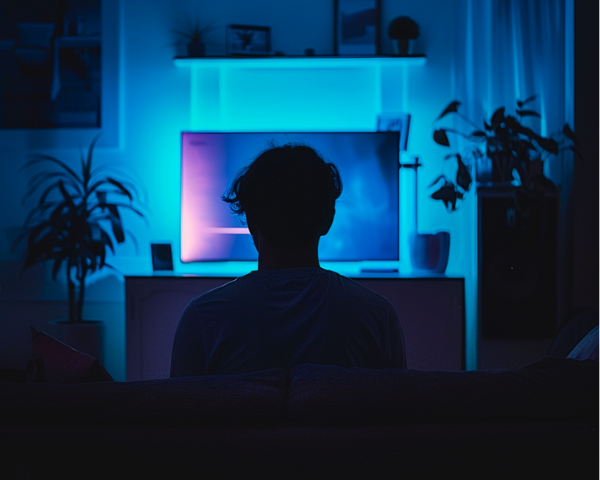
To make a difference in the way your eyes feel, try picking up a book instead.
If you truly can’t resist and need some screen time, wearing a pair of glasses with blue light filtering lenses may help to reduce eye strain and to limit the amount of time that you stay awake at night with sleep issues.
The decreased blue light exposure sends signals to your brain that you are ready to fall asleep, so you can put away that sleep medicine and stick to a normal sleep cycle, further improving sleep quality.
Do blue light glasses work for sleep?
Although many who wear blue light blocking glasses claim that they have reported seeing positive effects on their overall health and sleep quality, the short answer is that there is no scientific link between wearing blue blocking glasses and its effects on sleep stated in this article.
So, is it just a placebo effect? Even if scientific research doesn’t back them just yet, no one enjoys having constant headaches, digital eye strain and poor quality sleep.
It may be worth testing the effects of wearing a pair of blue light glasses for yourself.
For more information, check out our Optical Center where you can find more informational articles, or speak to one of our certified opticians.
Related articles


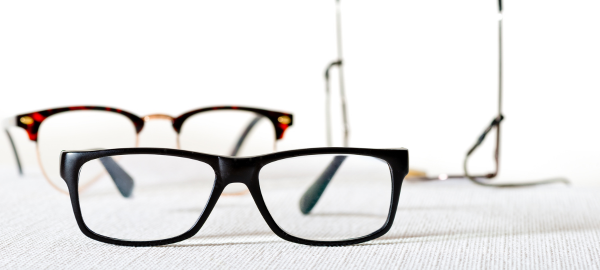
Related articles








































